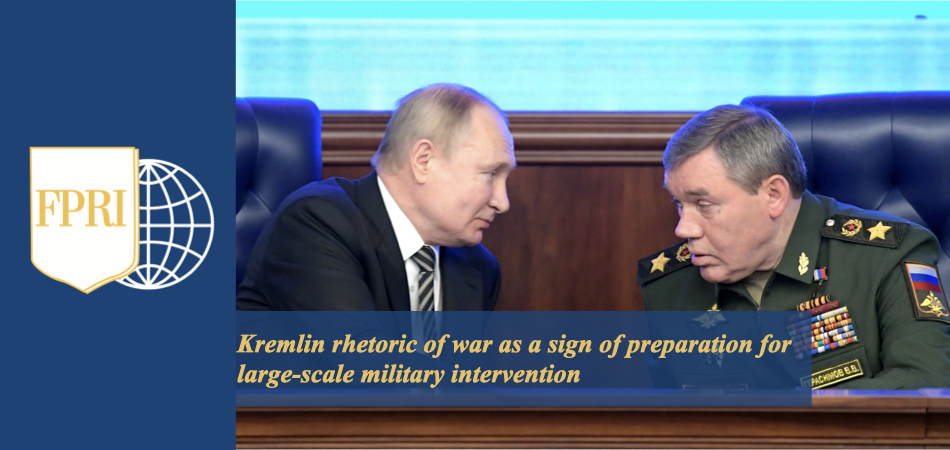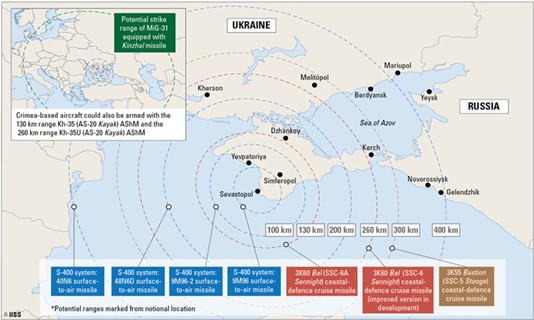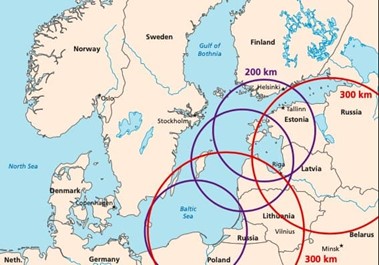
Against the background of the latest statements and actions of the leadership of the Russian Federation, think tanks and individual experts have written various articles about Russia's real intentions towards Ukraine and the possibility of the latter to resist in the event of a full-scale Russian military intervention. The vision of the situation on the part of Russian experts deserves special attention. There is still no consensus on the real intentions of Vladimir Putin in the Russian expert community, but a common feature of their assessments is drawing the historical analogies. Some of them draw parallels with Soviet-era policies under Stalin and Khrushchev, stressing that it is no longer the Russia that was under Gorbachev right before the collapse of the Soviet Union, or under Yeltsin or even early Putin when the latter closed Russian military bases abroad, in particular, in Cuba and Vietnam.
Director of the Carnegie Moscow Center Dmitry Trenin, commenting on the reasons for the deployment of Russian troops on the Ukrainian border, refers to the red lines outlined by the Russian president. In his commentary, Dmitry Trenin cites the example of «his American colleagues», arguing that the transformation of Ukraine into an «unsinkable aircraft carrier» of the United States near the Russian borders is as unacceptable for the Kremlin as transformation of Cuba into a similar «aircraft carrier» near the coast of the United States was unacceptable for the White House 60 years ago. The Russian expert ignores the fact that US military aid this year is $ 275 million. The next year, the Joe Biden administration intended to reduce this limited assistance to 250 million, which, fortunately for Ukraine, did not happen and the amount of 275 million was approved again. Obviously, such a level of support does not solve security question for Ukraine, all the more it does not create an opportunity to deliver an asymmetric strike to the Russian Federation, or create any threat to Russia's national security.
It is also argued that the current actions of the Kremlin are the result of «unfriendly» actions of Volodymyr Zelenskyy. Unfriendly means initiatives aimed at reducing the influence of the Russian «fifth column» on Ukrainian politics, the struggle for its own information space, as well as a number of adopted laws, such as the law on the «Indigenous Peoples of Ukraine» and «On the Foundations of State Policy in the Transition Period». In addition, the creation of the «Crimean Platform», an initiative aimed at consolidating the international community around the policy of non-recognition of the occupation of the Autonomous Republic of Crimea, should also be mentioned. These measures were criticized by Vladimir Putin at the annual press conference on December 24, 2021.
The Foreign Policy Research Institute stated at the beginning of 2021 that with the decrease in the ability of the Russian Federation to influence the internal political processes in Ukraine by non-military methods, Russia will increase the use of the military component. Now, according to information from the European and American intelligence communities, Russia is preparing to launch a full-scale offensive against Ukraine within a month. As an alternative, Vladimir Putin proposed a number of initiatives that limit the sovereignty of the countries of the region, in particular, the NATO member states. The overwhelming majority of the proposals of the Russian side are absolutely hopeless and require exclusively unilateral concessions on the part of the North Atlantic Alliance. However, this document is being discussed a lot and there are different opinions in the Russian expert community on the possibility of implementing some of its provisions.
Among the requirements, the fulfillment of which could satisfy the Russian president, some Russian and even European and American experts name the possible Finlandization of Ukraine. According to this scenario, the state should abandon the occupied territories, as well as limit its own sovereignty in foreign policy dimension. Moreover, in an article by Vladimir Frolov, published by the Carnegie Moscow Center under the title «A lot, loudly, in a hurry. How Russia could reach an agreement with NATO» a thesis about «wider Minsk» appears, providing for the Finlandization of all post-Soviet states. Vladimir Frolov refers to the American experts of the Carnegie Endowment Eugene Rumer and Andrew Weiss, who noted that the «wider Minsk» would reflect the shift of Russian «red lines» regarding Ukraine and provide for Russia's full membership in the new European security architecture. Thus, the Russian threat by force can lead to the formation of a new world order with spheres of influence and the right of regional poles to legitimately interfere in the affairs of neighboring states, contrary to the fundamental principles of international law, as it was in the 19th century. In such conditions, the Finlandization of Ukraine would mean the absorption of the country by the Russian Federation. Analyzing the recent statements of Vladimir Putin, as well as his article «On the Historical Unity of Russians and Ukrainians», it becomes clear that an independent state of Ukraine does not exist for him. There is only one Russian people, divided as a result of «the main geopolitical catastrophe of the 20th century» - the collapse of the Soviet Union.
Over the past 8 years, the Russian Federation has significantly expanded its influence in the Baltic-Black Sea region. The occupied Autonomous Republic of Crimea has become a large military base, and the deployment of weapons on its territory creates an anti-access and area denial zone in the Black Sea (A2 / AD). The Bastion and Bal coastal defense systems, equipped with anti-ship missiles, have been deployed in Crimea. It is likely that the range of the Bastion system could reach the Black Sea Straits, as well as Ukrainian, Bulgarian, Romanian and Turkish ports. Russia has also deployed S-300 and S-400 air defense systems on the peninsula with the ability to target strategic bombers, ballistic and cruise missiles, and ground targets. The S-400 system is further improved by an anti-aircraft missile and artillery system «Pantsir-S1», which was provided to the air defense forces located in the Crimea. These systems are complemented by Monolith-B coastal surface and air reconnaissance systems and other radars that provide long-range surveillance, early warning and target detection. The creation of the A2 / AD zone means that Russia has the ability to block the entry of NATO troops into the Black Sea, thus influencing NATO's potential actions.

Source: IISS
In the Baltic region, the Russian Federation has strengthened its military capabilities by militarizing the Kaliningrad exclave. As noted in a report by the American think tank RAND on the threats posed by the A2 / AD zones, Russian long-range missiles located in Kaliningrad could block NATO ships from accessing the Baltic Sea. Together with the positions in the western part of the Russian Federation, the missile destruction radius covers all the Baltic countries and Poland. In the long term, this will allow Russia to influence shipping to these countries, including block the access of the air and naval forces of the North Atlantic Alliance to the territory of the Baltic countries.
After the beginning of the Russian aggression against Ukraine, the North Atlantic Alliance pursued a policy of deterrence of the Russian Federation, avoiding the escalation of direct confrontation. At the same time, the Baltic and Black Sea regions were considered separately in policy-making, and the Black Sea region was of secondary importance. The takeover of Belarus and the possible deployment of Russian S-400 systems on its territory will now complete Russia's deterrent capabilities, forming a single A2 / AD zone from the Baltic to the Black Sea. Strategically, it significantly improves Russia's ability to seize the Left Bank of Ukraine.

The area of Russian missile systems possible destruction radius is marked in red.
Source: RAND
The Hill suggested possible ways to prevent a full-scale Russian invasion of Ukraine. The first option is to threaten Russia's military contingent in the occupied territories of Moldova and Georgia. Strengthening the armed forces of these two countries to a level sufficient to return the occupied territories, which, unlike Crimea, Russia did not declare as its own territory, would force Russia to disperse military resources and divert from the plan to capture Ukraine. In the second option, it is noted that the United States and its allies may also threaten to blockade or quarantine the Russian exclave of Kaliningrad. In the third option, it is proposed to involve Turkey. According to Articles 20 and 21 of the Montreux Convention, if Turkey feels that it is in imminent danger of war, it has the right to permit or restrict the passage of any ships it chooses. Turkey could declare that a war in Ukraine would present a danger to Turkey, allowing it to grant passage to an unlimited number of Western war ships while restricting Russian passage. Such a step would quickly tilt the balance of power against Russia in the Black Sea region — something Turkey might find beneficial to its own long-term security interests.[2] An adequate solution under the current conditions would be large-scale exercises of the North Atlantic Alliance, as well as increasing military assistance to Ukraine. If Vladimir Putin believes that possible geopolitical gains outweigh the risks of a potential military invasion of Ukraine, a full-scale offensive is inevitable. Therefore, only by increasing the possible price for aggression, Ukraine's independence can be preserved. When calculating the costs of possible support for Ukraine, the United States and European countries are forgetting the risks of not supporting it: refugee flows, Russia's growth, and increasing its border with NATO member states. Allies will be forced to increase spending on the security and defense sector, and Russia, as the dominant regional power, will dictate its terms to European countries, despite sanctions that have never in history changed the behavior of the states against which they were imposed.
- https://meduza.io/episodes/2021/12/20/rossiya-vydvinula-zapadu-ultimatum-po-povodu-rasshireniya-nato-pochemu-eto-novaya-strategiya-i-ona-opasnee-prezhney-govorim-s-aleksandrom-baunovym
- https://carnegie.ru/commentary/85872
- https://carnegie.ru/commentary/85998
- https://thehill.com/opinion/national-security/585034-what-are-the-best-us-military-options-for-ukraine
